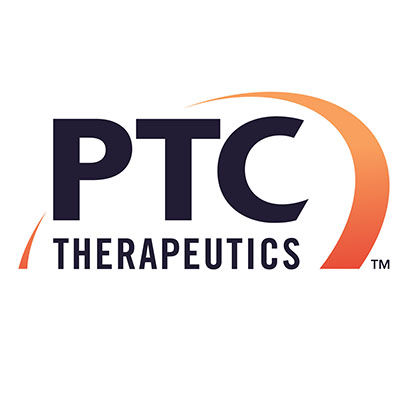预约演示
更新于:2025-05-07
Spinal Muscular Atrophy
脊髓性肌萎缩
更新于:2025-05-07
基本信息
别名 AMYOTROPHY, NEUROGENIC SCAPULOPERONEAL, NEW ENGLAND TYPE、Adult Onset Spinal Muscular Atrophy、Adult Spinal Muscular Atrophy + [146] |
简介 A group of disorders marked by progressive degeneration of motor neurons in the spinal cord resulting in weakness and muscular atrophy, usually without evidence of injury to the corticospinal tracts. Diseases in this category include Werdnig-Hoffmann disease and later onset SPINAL MUSCULAR ATROPHIES OF CHILDHOOD, most of which are hereditary. (Adams et al., Principles of Neurology, 6th ed, p1089) |
关联
98
项与 脊髓性肌萎缩 相关的药物靶点 |
作用机制 SMN2调节剂 |
在研机构 |
非在研适应症- |
最高研发阶段批准上市 |
首次获批国家/地区 美国 |
首次获批日期2020-08-07 |
靶点 |
作用机制 SMN1基因刺激剂 |
非在研适应症- |
最高研发阶段批准上市 |
首次获批国家/地区 美国 |
首次获批日期2019-05-24 |
靶点 |
作用机制 SMN2刺激剂 [+1] |
在研机构 |
非在研适应症 |
最高研发阶段批准上市 |
首次获批国家/地区 美国 |
首次获批日期2016-12-23 |
476
项与 脊髓性肌萎缩 相关的临床试验NCT06532474
Pilot Study Exploring the Physiologic, Pharmacodynamic, and Clinical Responses of Skeletal Muscle in Patients With Spinal Muscular Atrophy Treated With SMN-Directed Therapies
In this observational study, researchers are looking at the effects of spinal muscular atrophy (SMA) drugs on the muscles and nerve cells in patients with SMA.
Primary Objectives
* To evaluate the feasibility and reliability of performing MR functional imaging in exercising muscle in patients with SMA.
* To evaluate patients with SMA types 2 and 3 at baseline and longitudinally at 6 and 12 months
Secondary Objectives
* To describe the MR functional bioenergetics response in the leg muscles in four potential groups of patients with spinal muscular atrophy: untreated, actively treated with nusinersen (Spinraza®) or onasemnogene abeparvovec (Zolgensma®), actively treated with risdiplam (Evrysdi®), and switching from Spinraza or Zolgensma to Evrysdi.
* To identify changes in motor function in patients with SMA types 2 and 3 who initiate treatment with risdiplam.
* To obtain biomarkers in blood, urine, and muscle tissue to provide evidence for risdiplam effect on skeletal muscle.
* To obtain quality of life and disability data from participants in this study.
Primary Objectives
* To evaluate the feasibility and reliability of performing MR functional imaging in exercising muscle in patients with SMA.
* To evaluate patients with SMA types 2 and 3 at baseline and longitudinally at 6 and 12 months
Secondary Objectives
* To describe the MR functional bioenergetics response in the leg muscles in four potential groups of patients with spinal muscular atrophy: untreated, actively treated with nusinersen (Spinraza®) or onasemnogene abeparvovec (Zolgensma®), actively treated with risdiplam (Evrysdi®), and switching from Spinraza or Zolgensma to Evrysdi.
* To identify changes in motor function in patients with SMA types 2 and 3 who initiate treatment with risdiplam.
* To obtain biomarkers in blood, urine, and muscle tissue to provide evidence for risdiplam effect on skeletal muscle.
* To obtain quality of life and disability data from participants in this study.
开始日期2025-05-01 |
申办/合作机构 |
NCT06955897
Characterizing Perceived Physical Fatigability in Nusinersen-treated Adolescents and Adults: The SMA EFFORT
The purpose of this project is to investigate the utility of the SMA EFFORT, an SMA-specific patient-reported outcome measure, to assess perceived physical fatigability that is anchored to intensity and duration of activities. We aim to characterize perceived physical fatigability (PPF) in a diverse cohort of people with SMA (pwSMA) and evaluate the change of PPF before and after nusinersen dosing.
开始日期2025-04-24 |
申办/合作机构 |
ChiCTR2500101177
Effects of physical therapy on motor ability in patients with spinal muscular atrophy?-a study protocol for a randomized controlled trial
开始日期2025-04-21 |
申办/合作机构- |
100 项与 脊髓性肌萎缩 相关的临床结果
登录后查看更多信息
100 项与 脊髓性肌萎缩 相关的转化医学
登录后查看更多信息
0 项与 脊髓性肌萎缩 相关的专利(医药)
登录后查看更多信息
14,673
项与 脊髓性肌萎缩 相关的文献(医药)2025-12-31·Global Public Health
The transformative terrain: An in-depth analysis of trends in self-managed abortion in India using NFHS-5 national data
Article
作者: Pearson, Erin ; Banerjee, Sushanta K. ; Gulati, Sumit
2025-12-31·Journal of Medical Economics
Cost-utility analysis of newborn screening for spinal muscular atrophy in Japan
Article
作者: Tanaka, Satoru ; Hata, Akira ; Igarashi, Ataru ; Bischof, Matthias ; Uda, Akihito ; Schmitt, Laetitia ; Toro, Walter ; Weidlich, Diana
2025-12-01·Histochemistry and Cell Biology
Co-culture of postnatal mouse spinal cord and skeletal muscle explants as an experimental model of neuromuscular interactions
Article
作者: Panteleyev, Andrey A ; Patsaev, Timofey D ; Klein, Olga I ; Mikhailova, Mariya M
1,950
项与 脊髓性肌萎缩 相关的新闻(医药)2025-05-01
Spinal muscular atrophy treatment Spinraza (nusinersen) became Biogen’s best-selling drug in Q1 2025. Image credit: Shutterstock/ Tada Images.
Biogen has unveiled Q1 2025 revenues above estimates, spurred by strong sales of rare disease assets amid a sales dropoff from its multiple sclerosis business.
Quarterly revenues for the neurological disease drugmaker were $2.43bn, above analyst group William Blair’s estimates of $2.3bn. The Q1 sales performance represents a 6% increase compared to the same period in 2024, with Biogen ramping up commercial duties for existing drugs and buying assets during that time.
One of those assets is Skyclarys, a drug picked up in a
$7.3bn acquisition of Reata Pharmaceuticals
in September 2023. The treatment for the neurodegenerative disorder Friedreich’s ataxia generated revenue of $124m in Q1, a value that had already taken into account the impact seen in US sales due to Medicare discount dynamics.
Approved in the US, Europe, and UK, amongst others, Skyclarys has a high growth ceiling. GlobalData’s Pharma Intelligence Centre forecasts sales of $1.3bn by 2031.
GlobalData is the parent company of
Pharmaceutical Technology
.
Skyclarys is one of the drugs spurring a change of the guard in Biogen’s pipeline. The company is well known for its host of multiple sclerosis treatments, such as Vumerity (diroximel fumarate), Tysabri (natalizumab), and Avonex (interferon beta-1a). But, sales for these treatments have declined over the years as biosimilars entered the market. The company’s multiple sclerosis business shrank 11% in Q1 2025 compared to the same period last year.
GlobalData Strategic Intelligence
US Tariffs are shifting - will you react or anticipate?
Don’t let policy changes catch you off guard. Stay proactive with real-time data and expert analysis.
By GlobalData
Learn more about Strategic Intelligence
“Biogen is really, a tale of two companies in my view. There’s one company which has been a multiple sclerosis company, and that portfolio, as you all know, has been gradually declining,” said Biogen’s CEO Chris Vibacher in a Q1 earnings call.
“But there’s a new Biogen emerging. And when I look at the rare disease business […] we actually have a commercial portfolio that we’re actively promoting that’s now gotten to be about 45% of our product revenue. And those products mostly have a very long runway to continue to grow,” Vibacher added.
Alongside Skyclarys, Biogen’s rare disease business is headed by spinal muscular atrophy treatment Spinraza (nusinersen). Spinraza generated global Q1 2025 sales of $423.9m, up from $341.3m in Q1 2024. This increase, coupled with the decline of Tysabri, meant Spinraza was Biogen’s best-selling drug in Q1 2025.
Leqembi’s “modest growth”
Another key part of Biogen’s business model is its Alzheimer’s segment, now solely headed by Leqembi (lecanemab) after the company
discontinued Aduhelm (aducanumab)
at the start of 2024.
Biogen splits revenue from Leqembi with co-developer Eisai equally, the latter
reporting Q1 sales
of $96m for the drug. The US, where Leqembi got a full approval in July 2023, accounted for $52m of those sales. Biogen has already secured key milestones for Leqembi this year. In January, the US Food and Drug Administration (FDA) approved maintenance dosing of Leqembi, a move expected to expand its market share. Then in April, the Leqembi was
authorised for use in the European Union (EU).
Biogen said the Q1 sales for Leqembi represented “continued sequential growth.”
William Blair analyst Myles R. Minter said in a research note that: “Skyclarys had a strong quarter, but the commercial focus remains on Leqembi, which has seen only modest growth, in our view.”
In the mergers and acquisitions space, Biogen
failed a $469m takeover bid
of Sage Therapeutics in January.
上市批准并购生物类似药
2025-04-29
Novartis is starting the year on a strong note as several of its core medicines beat Wall Street’s sales projections, prompting the drugmaker to shift its full-year guidance to a higher bar.
In the first three months of 2025, the company’s net sales increased by 15% to $13.2 billion, beating Wall Street’s consensus of around $13 billion, the Swiss pharma said in a Tuesday
release
.
With that, Novartis now expects net sales in 2025 to grow by high-single digits, up from a previous range spanning the mid- to high-single digits. This means Novartis could reach up to $55 billion in sales this year, Jefferies analysts said in a same-day note.
Novartis’ Tuesday update follows its positive full-year 2024 earnings, which it described as
one of the strongest in its history
after its yearslong rejig as a pure-play pharma company. It achieved $50.3 billion in sales last year.
As for its clinical pipeline, the company axed two programs: a chondrogenic asset called LRX712 and a radiopharmaceutical candidate dubbed GIZ943.
Novartis dropped LRX712 after it showed “insufficient effect on knee cartilage” in a Phase 2 trial of patients with osteoarthritis, a company spokesperson told
Endpoints News
in an email. It nixed GIZ943, which was in development for ovarian and lung cancer, based on a Phase 1 risk-benefit assessment, the spokesperson said.
The first half of 2025 should be especially strong, CFO Harry Kirsch said in a media call. Novartis expects generic competition for its heart failure drug Entresto, cancer medicine Tasigna and blood disorder treatment Promacta from midyear onwards.
Products that performed better than the Street expected in Q1 included asthma drug Xolair ($456 million), spinal muscular atrophy therapy Zolgensma ($327 million) and Still’s disease treatment Ilaris ($419 million), according to Jefferies analysts.
Meanwhile, Kisqali sales in the quarter grew 56% to $956 million, reflecting its position as “the CDK4/6 inhibitor of choice across metastatic and early breast cancer,” CEO Vas Narasimhan said on the call. And sales of cholesterol-lowering medicine Leqvio increased 72% to $257 million as it remains on track to reach blockbuster status this year.
The company also highlighted that it won three FDA approvals in Q1, which should bolster its performance this year. In March, its radioligand drug Pluvicto
was greenlit
for certain prostate cancer patients who haven’t received chemotherapy. Pluvicto reached blockbuster status for the first time last year. Also in March, Fabhalta
secured its third indication
for an ultra-rare kidney disease called C3 glomerulopathy. And earlier this month, Vanrafia
was approved
for a rare kidney disease called IgA nephropathy.
上市批准临床1期临床结果临床2期
2025-04-29
iStock,
Alona Horkova
Biohaven will use the money to bankroll commercial preparations for the spinocerebellar ataxia drug candidate troriluzole, which is currently under FDA review with a decision expected in the third quarter.
Biohaven
has secured a
potential $600 million non-dilutive infusion
from private investment firm Oberland Capital, which will help fund its clinical and commercialization efforts, the company announced on Monday.
Oberland will hand over $250 million once the deal closes, which Biohaven expects to occur “on or before April 30, 2025.” An additional $150 million tranche will be paid at the biopharma’s option and only after its spinocerebellar ataxia (SCA) drug troriluzole secures FDA approval, plus other specified conditions.
The final $200 million balance will come once the parties reach a mutual agreement on certain “permitted strategic acquisitions and related costs and expenses.” In return for its investment, Oberland will be able to receive a regulatory milestone payment—which Biohaven can make quarterly through December 31, 2030—plus tiered single-digit royalties on net sales of troriluzole for up to 10 years.
According to Biohaven, Monday’s funding arrangement will help it prepare for the commercial roll-out of troriluzole, in anticipation of an FDA approval. The drug, an investigational modulator of the glutamate neurotransmitter, is currently undergoing regulatory review for SCA, with a decision expected in the
third quarter
.
Troriluzole’s prospects seem mixed. In September 2024, topline pivotal data showed that the drug candidate
could slow
patients’ rate of decline by 50% to 70% versus untreated counterparts. Troriluzole also delayed SCA progression by 1.5 years to 2.2 years.
On the other hand, in August 2023, the FDA
refused
to even review troriluzole’s drug application, flagging that a Phase III trial used to support that application had
failed
to meet its primary endpoint.
Oberland’s funding will also support Biohaven’s efforts across its developmental portfolio—a capital infusion that will help the company regain its footing in the clinic after a series of stumbles.
In March, Biohaven reported that its potassium channel agonist BHV-7000
failed
a Phase II/III trial in bipolar mania, unable to elicit significant improvements in manic symptoms in more than 250 patients with bipolar I disorder. In November last year, the myostatin and activin receptor blocker taldefgrobep alfa
likewise flopped
in the Phase III RESILIENT SMA study, failing to significantly boost motor function versus placebo in patients with spinal muscular atrophy.
A few months earlier, in May 2024, Biohaven
reported
that its protein degrader BHV-1300 could reduce levels of autoantibody IgG in a Phase I healthy-volunteer trial. Investors were unimpressed by these data, however, sending the company crashing some 12% in its aftermath. At the time, analysts at William Blair said Biohaven’s findings fall “below the high bar” that many investors were hoping for.
临床3期临床1期引进/卖出上市批准
分析
对领域进行一次全面的分析。
登录
或

生物医药百科问答
全新生物医药AI Agent 覆盖科研全链路,让突破性发现快人一步
立即开始免费试用!
智慧芽新药情报库是智慧芽专为生命科学人士构建的基于AI的创新药情报平台,助您全方位提升您的研发与决策效率。
立即开始数据试用!
智慧芽新药库数据也通过智慧芽数据服务平台,以API或者数据包形式对外开放,助您更加充分利用智慧芽新药情报信息。
生物序列数据库
生物药研发创新
免费使用
化学结构数据库
小分子化药研发创新
免费使用





